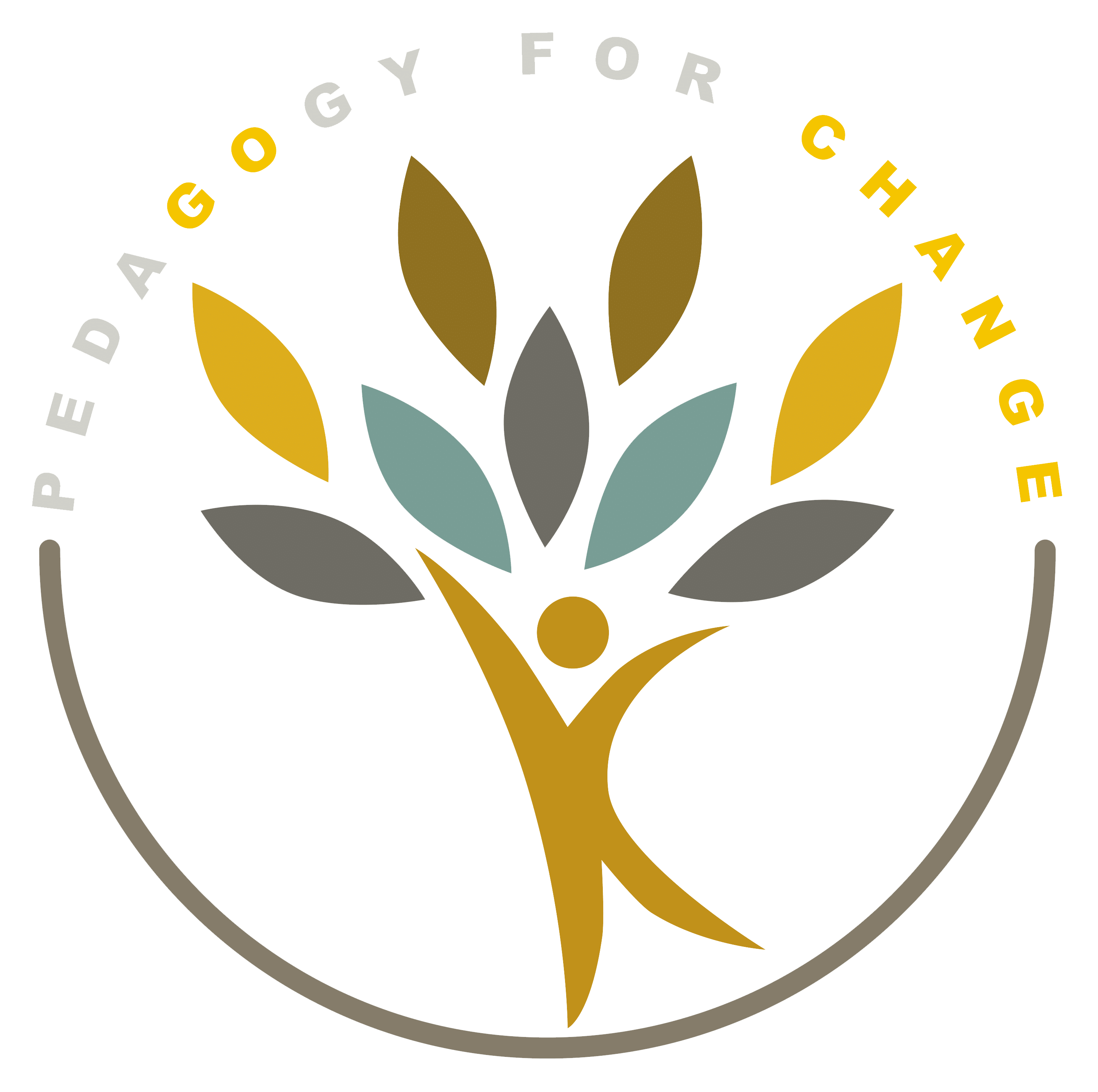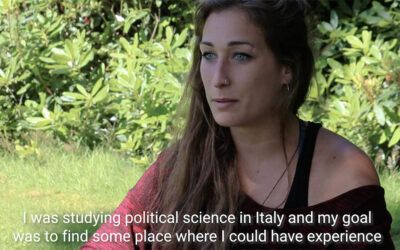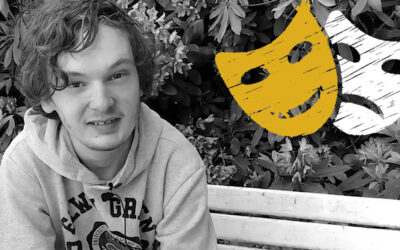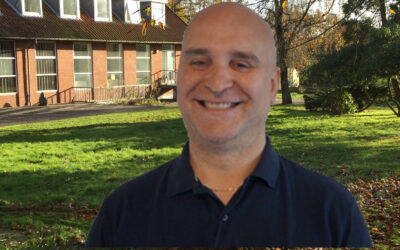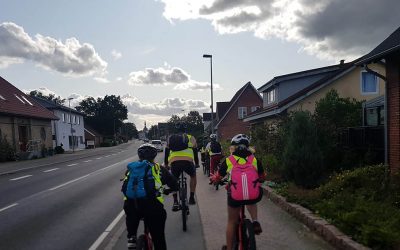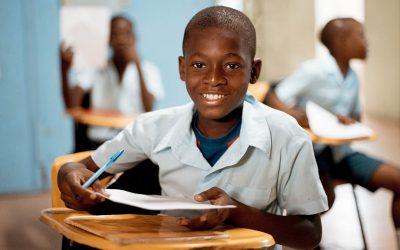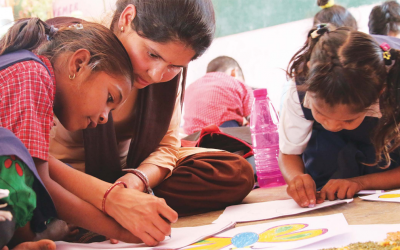

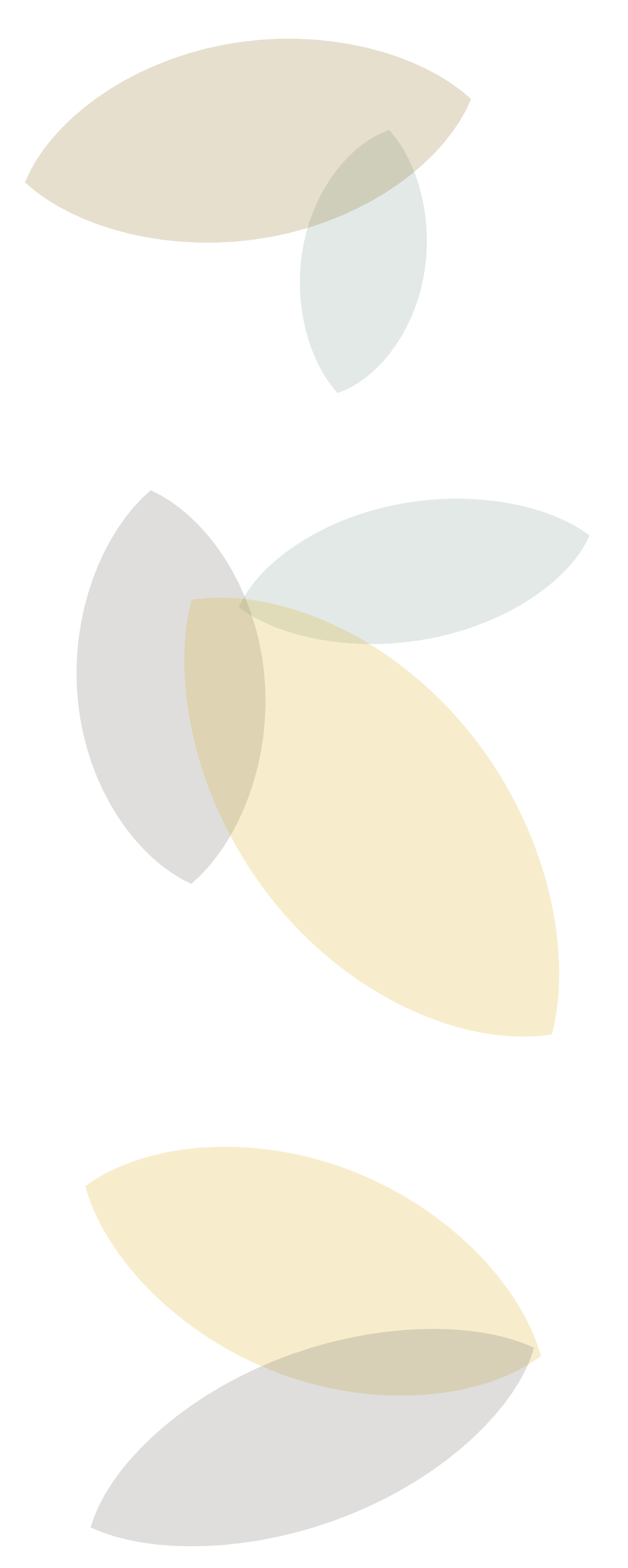
Helle at the Bogense Care Home
Helle works in a care home in Bogense, which is a small town on Funen in central Denmark. She has experience with international development as well as social education work.
Helle is responsible for the Development Instructors who do their initial training at the care home in Bogense.
In this blog post she talks about what kind of work the care home does.
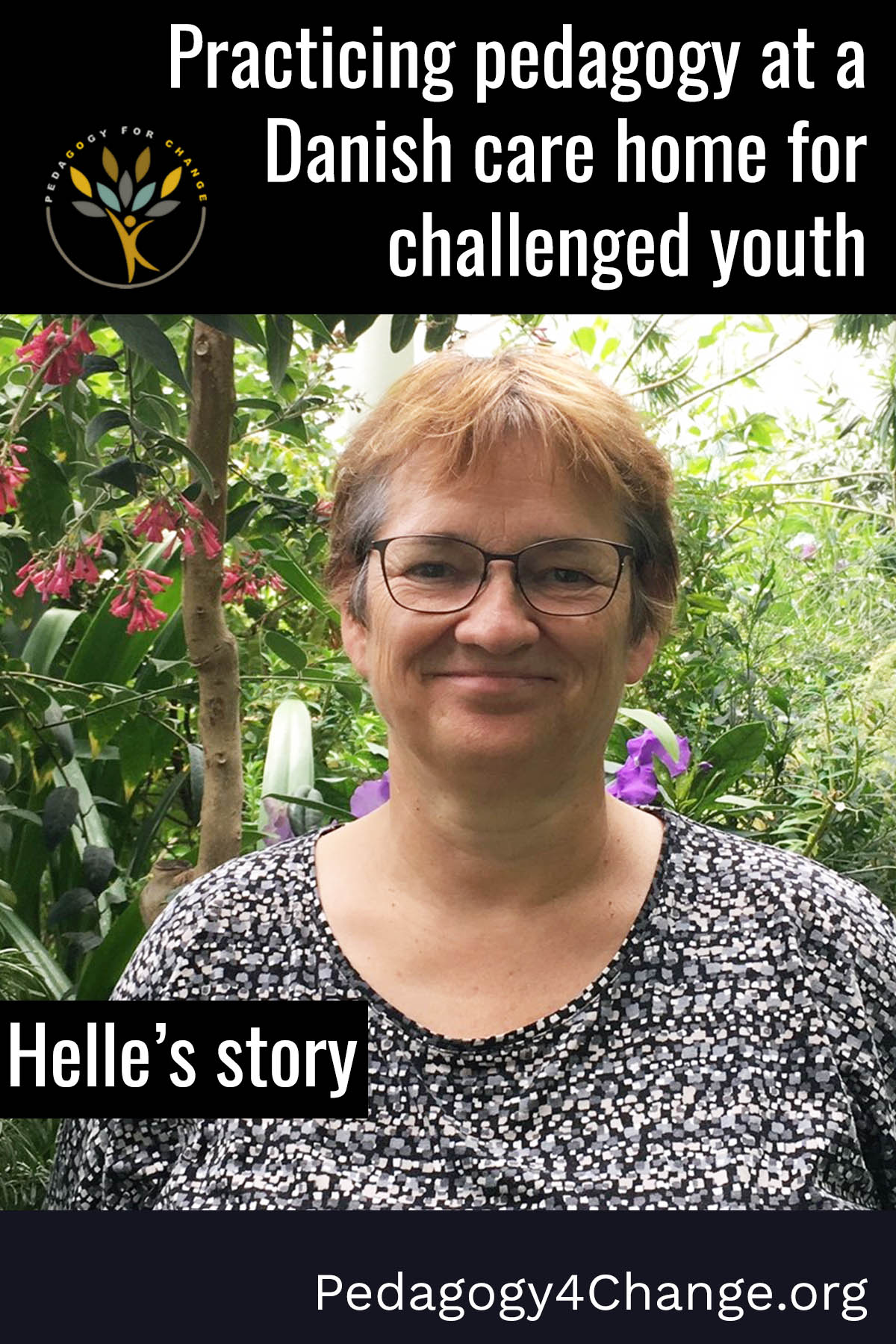
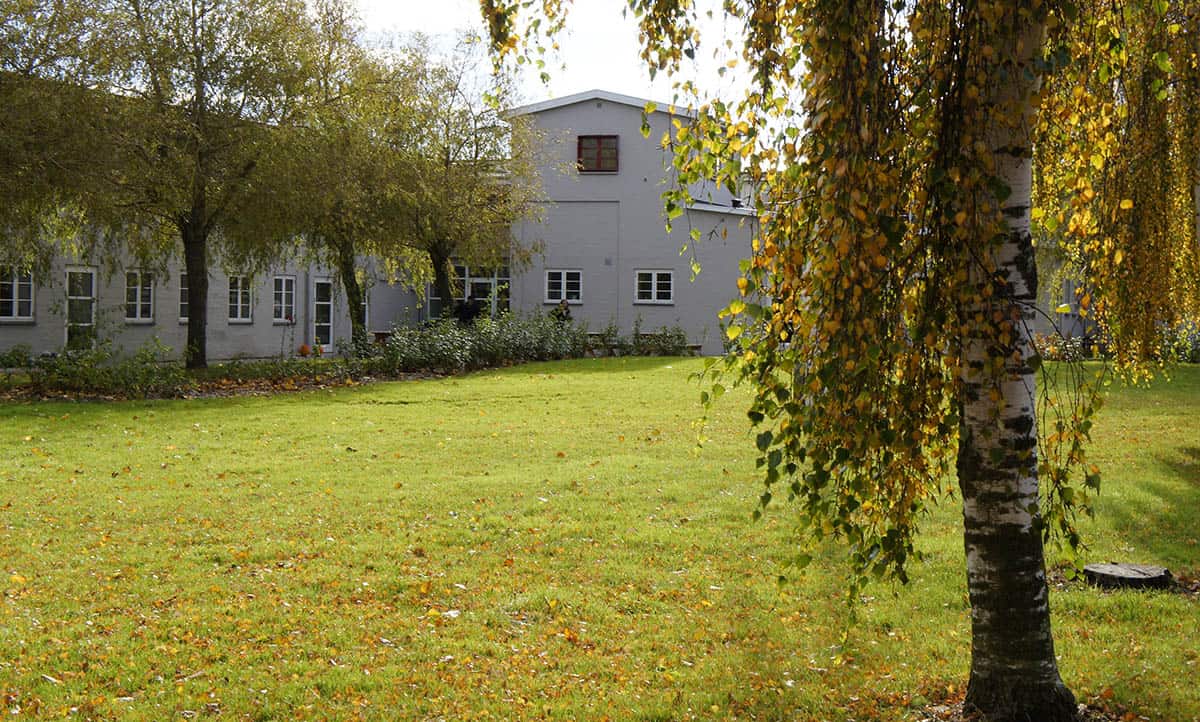
The Bogense Care Home and its students
The care home in Bogense is approved for 22 students from the ages of 13 to 29 years – so we have one department for children and youth, and another department for adults. Common issues for those young people mostly stem from lack of being taken care of when they were babies and during their early childhood.
Many of the youngsters come from families that are not able to live up to the responsibility to take care of them or guide them. Due to having suffered neglect in their early years, they often have to deal with a combination of lack of self-confidence, problems in school, being attracted to groups/gangs that are not positive for them and being in trouble with the law.
These are the reasons why the local social services decide that these youngsters need to be moved out of their negative environment and put in a position where they have better opportunities for following a positive life path. Some of them end up at our care homes.
We have a good set-up with ample space both indoors and outdoors and we have many experiences with creating activities that the students like and can grow from. We call our young men and women “students” because we look at their stay here as a learning process – in the school of life. In other places they would be called “residents”, “clients” or “youngsters” but we prefer “students”.
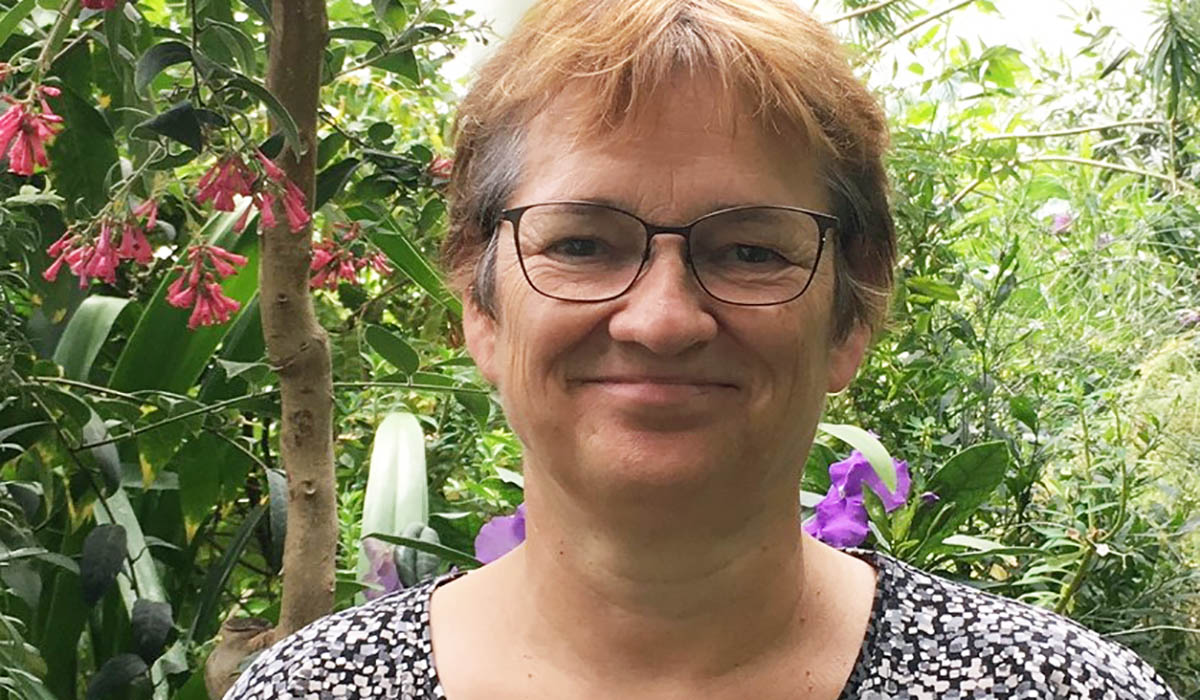
More about Helle
““I am Helle, I am 61 years old and have been working at Bogense for 15 years. I have been working mainly at the school department and now I work at the care home mainly with communication to spread information about the care home, the goals and the activities.
My other tasks include working with volunteers & Development Instructors’s, the garden farming, planning, activities in the local community, planning the food and many different other activities.
Before working here, I worked with Humana People to People with clothes collections, shops and generally running activities, for 20 years; in Denmark for five years, in France for seven years and in Spain for eight years. I have two children, aged 21 years and 24 years. “
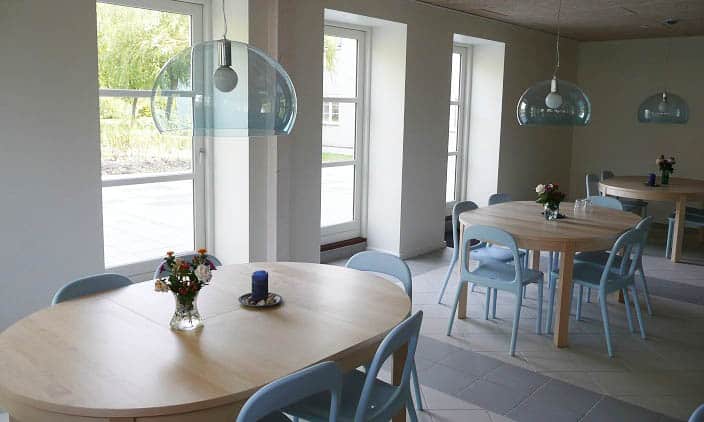
Small steps in a safe space
In this job we are often challenged because the students are not just doing, what we ask them to do, they are not automatically following their programme and they don’t get up on time every day as they are supposed to – and so on. They have many personal and psycho-social issues that makes it difficult for them to follow the conventional way of leading a life.
Many of the students cannot control their anxiety and fear, so it is important that we create spaces together with them, where they feel safe and dare to believe in themselves. When we see that small things can make them happy, and that we can create activities, situations and conversations that make them feel safe and taken care of – we know we are making a difference.
At the point when we feel they trust us, this is when we feel we are moving them, even if the steps are small – that is the gold of working here.
.
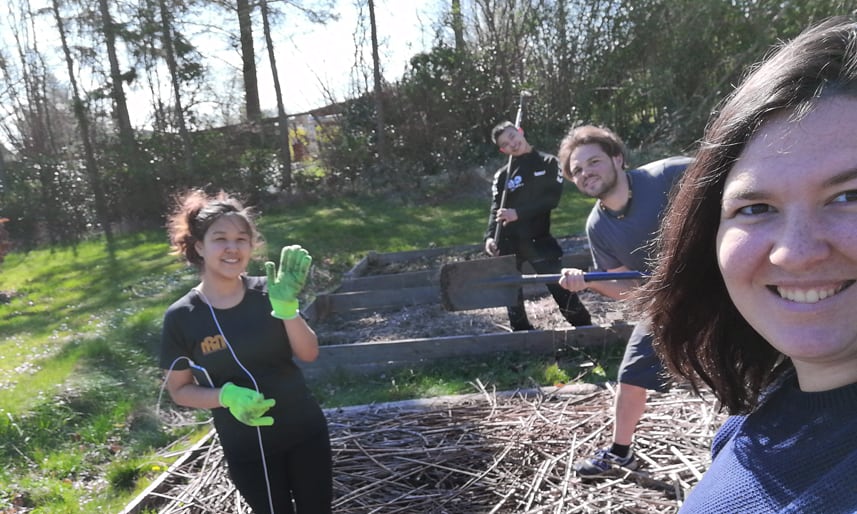
Experiencing progress is gold
Progress comes over time, and in small steps. We pedagogues and teachers discuss every day how to get the students to take responsibility for their own daily life. How to get up in the morning, how to do their maths homework and how to do housework like cleaning their rooms.
One example is a teenager who has been here for three years. He is over 18 years old now and he signed up at the local education centre to make his mathematics examinations. He had a task of completing 14 assignments. Right now, he is still missing half of them, and he sees it as a big task to get them done. But to see his excitement, when he got the response from the teacher, who said “well done – this is really good” was priceless. So, there are many discussions to keep him going and make him continue to take the exam, as well as encouraging him to take his medication… and it is an everyday task. That is an example of progress.
Another student recently moved into his own apartment. Two years ago, he had depression over several months and was doing absolutely nothing. Now, he is enrolled into secondary education. He gets up every day to catch a bus at 6 am. Now he understands the different discussions that we have had with him over time. Now, he is on the other side of the fight and he is finding his own way.
This is another example of progress and it is definitely worth the daily struggles. Basically, it is humble, consistent care work.
.
MORE GOOD STUFF
Greta: “Let’s grow, together”
Greta was looking for community based opportunities after completing her studies in political science. She gained valuable hands-on experience by encountering Danish & Malawian culture.
Drama as a pedagogical tool
A theatre project is an excellent way to bring people together, unleash hidden talents, strengthen self-esteem and build community through a creative process.
Giampaolo at Helios Free School
After completing the 24 month Pedagogy for Change course, Giampaolo went on to continue a life of teaching in Denmark, taking on new challenges and adventures. Read his story here.
Experiential Learning
Helios Free School is situated in Holsted in southern Jutland, approx. 100 kilometres from the German border. The teachers at the school take their students on expeditions to experience reality.
Needed: 69 million teachers
Teachers worldwide are doing a fantastic job to provide quality education despite the pandemic. However, over 69 million new teachers are needed in the near future.
Educators of the 21st Century
A new generation of well-educated, dedicated and unflinching educators are very much in need. Advances in technology may be great, but cannot replace passionate role models.
